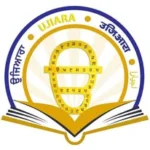Hari Singh Nalwa: The Fearless General of the Sikh Empire
Hari Singh Nalwa (1791–1837) was one of the most celebrated and formidable generals of the Sikh Empire under Maharaja Ranjit Singh. Known for his unmatched bravery, military genius, and administrative skills, Nalwa played a crucial role in expanding the Sikh Empire beyond the Indus River and striking fear into the hearts of Afghans, who had long been invaders of Indian territory.
Early Life and Background
Hari Singh was born in 1791 in the village of Gujranwala (present-day Pakistan) into a Khatri family. His father, Gurdial Singh, passed away when Hari Singh was just seven years old. Despite the early loss, Hari Singh displayed an extraordinary spirit and a keen interest in martial arts and horse riding from a young age.
At the age of 17, he was introduced to Maharaja Ranjit Singh and was soon inducted into the Sikh army. His courage and skill earned him the title “Nalwa” after he single-handedly killed a tiger without a firearm during a hunting expedition — “Nalwa” meaning tiger-slayer.
Military Achievements
Hari Singh Nalwa rapidly rose through the ranks and became the Commander-in-Chief of the Sikh Khalsa Army. He led numerous victorious campaigns in the northwest frontiers of India. Some of his most significant conquests include:
Battle of Kasur (1807): One of his first major battles where he showed exceptional bravery.
Multan Campaign (1818): He helped conquer the important trading city of Multan.
Kashmir Conquest (1819): Under his leadership, the Sikh army successfully annexed Kashmir, ending centuries of oppressive Afghan rule.
Battle of Peshawar (1834): Perhaps his most renowned feat, where he captured Peshawar from the Afghans and extended the Sikh Empire to the mouth of the Khyber Pass.
Jamrud Fort (1836): He built and defended the strategic Jamrud Fort at the mouth of the Khyber Pass, a key entry point for Afghan invaders. His defense of this fort kept the Afghans at bay, and his name alone became a terror in the region.
Administration and Legacy
Apart from his battlefield exploits, Hari Singh Nalwa was also a wise administrator. He governed vast areas such as Peshawar, Hazara, and Kashmir, maintaining law and order and promoting economic development. He was known for his fairness and strong leadership, and he built roads, forts, and public buildings during his tenure.
His rule brought stability to regions long plagued by Afghan invasions. Afghans used to say: “Khauda-e-talaq Hari Singh aaya” (God forbid, Hari Singh has come) — highlighting the fear his name inspired.
Death and Martyrdom
Hari Singh Nalwa died in 1837 at the Battle of Jamrud while defending the fort against a large Afghan force led by Dost Mohammad Khan. Though severely wounded, he kept the Sikh flag flying and ordered that his death be kept secret until reinforcements arrived. His martyrdom protected the fort and delayed Afghan advances, ensuring the territorial integrity of the Sikh Empire.
Legacy and Remembrance
Hari Singh Nalwa is remembered as one of the greatest military commanders in Indian history. His achievements not only protected Punjab but also deterred Afghan invasions for decades. His fearlessness, leadership, and service to the Sikh Empire are etched in the hearts of generations. Statues and memorials have been erected in his honor in Punjab and beyond. He remains a symbol of Sikh valor and Indian pride.


Leave a Reply